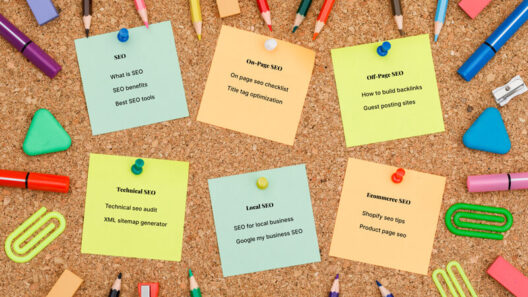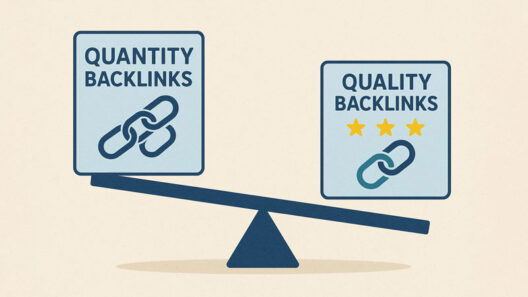In an industry where algorithms evolve daily and AI-generated content floods the web, one factor still sets you apart as an SEO professional: personal authenticity.
Clients, colleagues, and online communities don’t just want someone who knows ranking factors, they want someone they can trust. They want to see the person behind the title, the real stories behind the case studies, and the values that guide your work.
If you want to build credibility, grow your reputation, and win long-term trust as an SEO expert, authenticity is your most powerful differentiator. Here are five ways to bring it into your personal brand.
1. Know Your Core Values and Voice
Authenticity starts with self-awareness. As an SEO professional, ask yourself:
- Do I value transparency? Then I should show clients realistic timelines instead of promising overnight rankings.
- Do I value creativity? Then I should share innovative keyword research methods or unique content strategies.
- Do I value inclusion? Then I should highlight diverse perspectives in SEO case studies or guest posts.
Your personal voice matters too. Whether you write in a conversational tone, data-heavy style, or storytelling format, consistency helps your audience recognize you.
Action Step: Write a short “SEO Manifesto” for yourself, 3–5 values that guide your work. Use them to shape your LinkedIn posts, case studies, and client interactions.
2. Tell Real Stories – Even the Imperfect Ones
Every SEO has stories of experiments gone wrong, campaigns that flopped, or rankings that tanked overnight. Sharing these experiences doesn’t weaken your credibility, it strengthens it.
When you reveal how you navigated mistakes or failures, people see that you’re human and resilient. That honesty is more powerful than any polished “perfect” case study.
Example: Instead of only posting about a client’s traffic growth, share the initial strategy that didn’t work, what you learned, and how you pivoted to achieve success.
Action Step: Start a blog or LinkedIn series like “SEO Lessons I Learned the Hard Way”. Readers will appreciate the raw honesty and learn from your experience.
3. Be Consistent Across Channels
Your authenticity shouldn’t change depending on the platform. If you’re open and approachable on Twitter/X but robotic on LinkedIn, people will question what’s real.
Consistency helps people trust you. Whether it’s your portfolio website, LinkedIn profile, conference talks, or guest posts, your tone and values should align.
Action Step: Audit your personal brand. Look at your bio, posts, and public profiles. Do they reflect the same voice? Are your values visible everywhere, or do they vanish on certain platforms?
4. Engage, Don’t Just Broadcast
Authenticity is not about how much content you push, it’s about the conversations you create.
If someone asks a question about technical SEO in a forum, don’t just drop a link to your blog. Answer thoughtfully. If someone disagrees with your take on Google’s Helpful Content update, engage respectfully instead of ignoring or attacking.
Responding to DMs, comments, and feedback shows you’re not just chasing visibility, you actually care about the community.
Action Step: Dedicate 15 minutes daily to engage in discussions, on SEO Slack groups, Reddit, or LinkedIn comments. Not to sell, but to genuinely help.
5. Showcase Real People, Not Just Achievements
Your personal authenticity shines when people see the person behind the SEO expert. Share your personality, not just your portfolio.
Talk about the struggles of balancing client deadlines, your curiosity when testing AI tools, or even the way you disconnect after work. These glimpses of real life make you relatable and memorable.
Action Step: Next time you post a case study, add a personal note: “I nearly gave up on this campaign after the first two months, but here’s what kept me going…” That human touch can set you apart in a sea of polished “success stories.”
Why This Matters in SEO
- Trust is a ranking factor: Authenticity builds credibility, which leads to more backlinks, mentions, and engagement.
- Clients choose people, not just skills: Many SEOs have the technical expertise, but clients hire the person they trust.
- AI can’t replicate it: While tools can generate content, only you can bring your unique experiences, values, and stories.
Final Thoughts
As an SEO professional, your edge isn’t just in mastering algorithms, it’s in being real.
When you know your values, share honest stories, stay consistent, engage meaningfully, and show the human behind the expertise, you create a personal brand that people can trust and that trust translates into authority, visibility, and long-term success.
So, the next time you log into Search Console, remember: your authenticity is just as important as your technical skills.
Relevant content: Building a Niche Oriented Personal Brand in Digital Marketing
Frequently Asked Questions
Personal authenticity builds trust with clients, colleagues, and audiences. It sets you apart from competitors, increases credibility, and makes your insights more relatable. In a market full of AI-generated content, authenticity is your unique advantage.
You can show authenticity by sharing real case studies (including failures), engaging in genuine conversations on social media or forums, and staying consistent in your tone and values across all platforms.
Indirectly, yes. Authenticity leads to more backlinks, higher engagement, and stronger authority signals, all of which search engines reward. Google’s E-E-A-T guidelines specifically value first-hand experience and trust.
Examples include:
1. A blog post about a failed SEO experiment and what you learned.
2. A behind-the-scenes video of your SEO workflow.
3. Sharing client challenges and how you overcame them.
4. Writing thought pieces based on your own testing, not just theory.
Be transparent but thoughtful. Share lessons, experiences, and values without oversharing private details. Authenticity means being genuine, not unfiltered, it’s about showing the person behind the expertise while maintaining professionalism.




